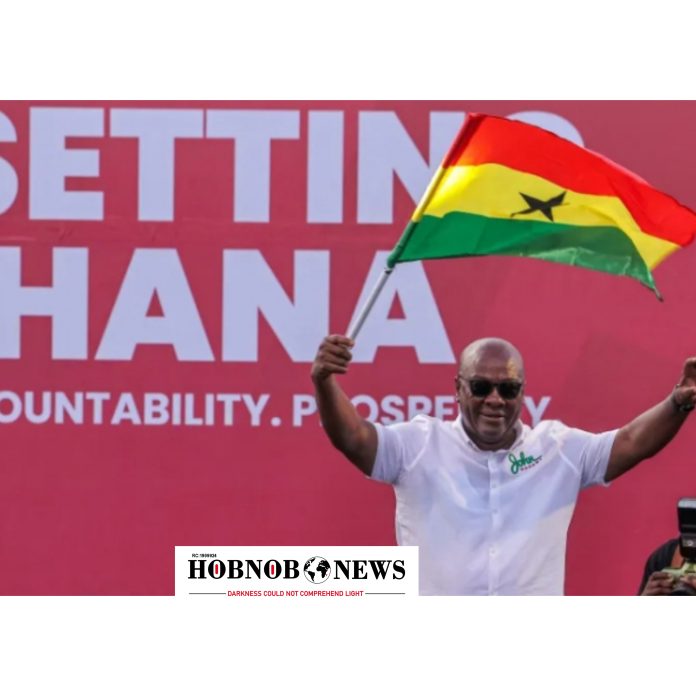Accra, Ghana — In a decisive move to curtail public spending and enhance government efficiency, President John Mahama has dissolved seven ministries, trimming the total from 30 to 23. The restructuring aligns with Ghana’s commitment to fiscal prudence under an International Monetary Fund (IMF) austerity program aimed at economic stabilization.
The decision, documented in an official gazette on January 9, underscores Mahama’s resolve to streamline government operations. Key ministries retained in the new structure include Finance, Health, Interior, Defence, Education, Energy and Green Transition, Roads and Highways, and Transport. The President’s office affirmed this strategy in a public statement, emphasizing the need for efficient governance and effective resource management.
Mahama, who previously served as Ghana’s president from 2012 to 2017, returned to power after a tightly contested election, defeating former Vice-President Mahamudu Bawumia. Mahama secured 56.55% of the vote, while Bawumia, who graciously conceded before the final count, obtained 41.6%.
The current administration’s cost-cutting measures stand in stark contrast to recent developments in neighboring Nigeria. President Bola Tinubu expanded Nigeria’s ministerial positions from 44 under his predecessor Muhammadu Buhari to 48 in 2023. Mahama’s decision reflects a different approach, focusing on consolidating governance while ensuring the optimal use of public resources.
The ministries eliminated in this restructuring have not yet been named, but insiders suggest the move is part of broader efforts to reduce redundancy and prioritize essential services. Mahama’s administration also seeks to foster transparency, build trust, and demonstrate fiscal responsibility, particularly under the watchful eyes of international partners like the IMF.
Political analysts have praised the decision as a pragmatic step toward sustainable governance, particularly in the context of Ghana’s economic challenges. Citizens and advocacy groups are calling for further clarity on how the remaining ministries will manage the redistributed workload, ensuring no disruption to public services.
Mahama’s return to power marks a renewed focus on efficiency and fiscal discipline, with his government promising to work tirelessly to restore economic stability and improve the lives of ordinary Ghanaians. As the nation navigates its economic recovery, this move signals a commitment to tackling governance challenges while remaining accountable to its citizens and international stakeholders.

